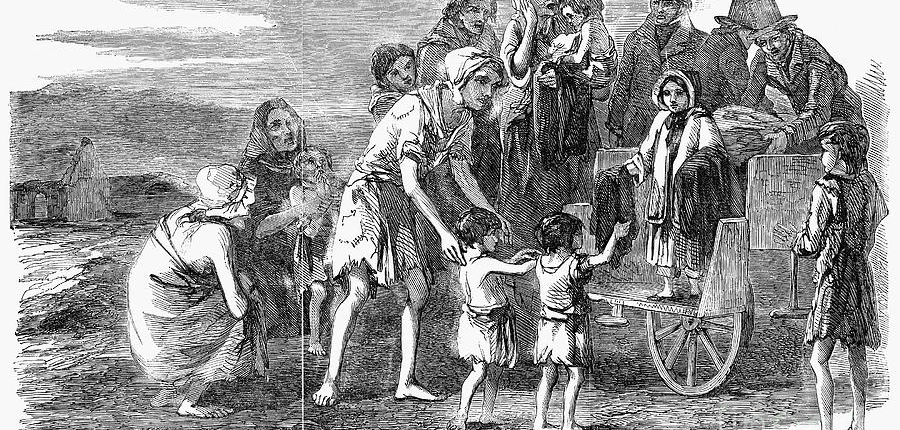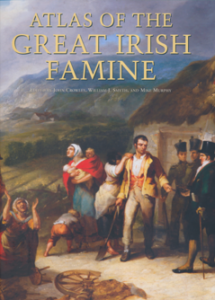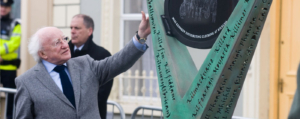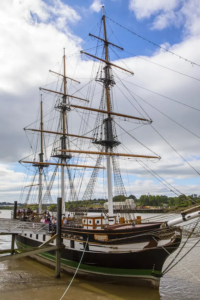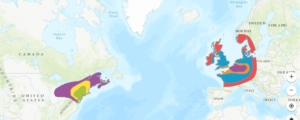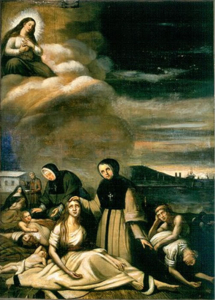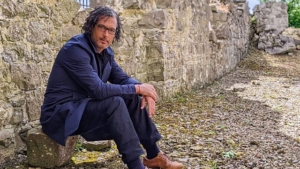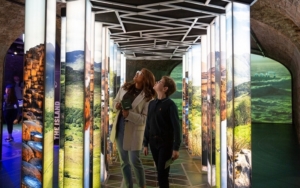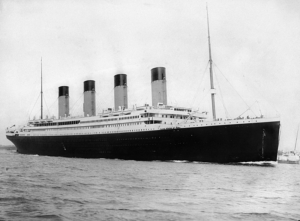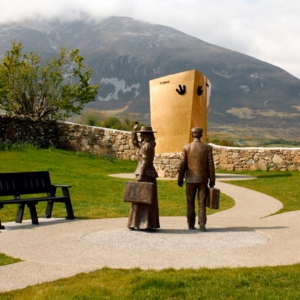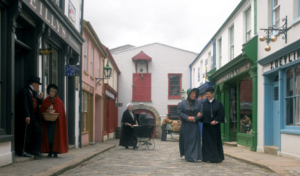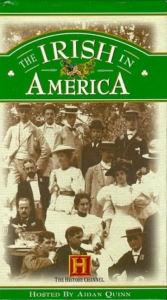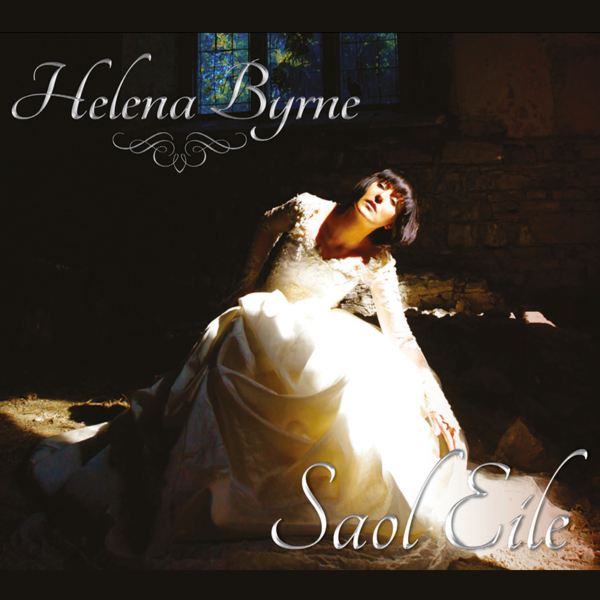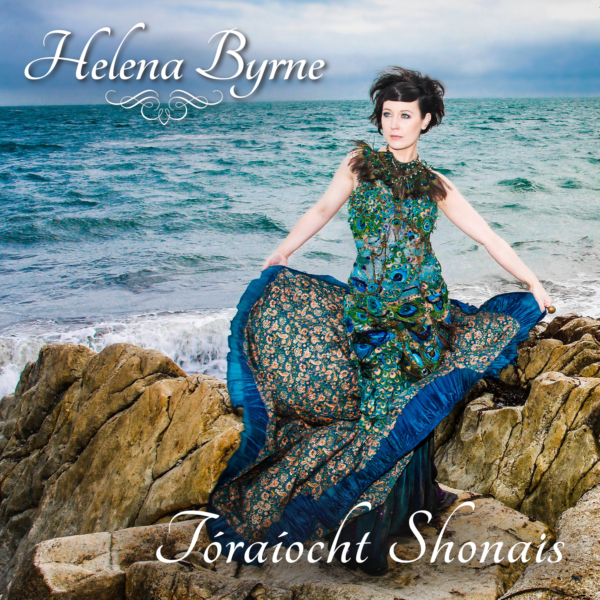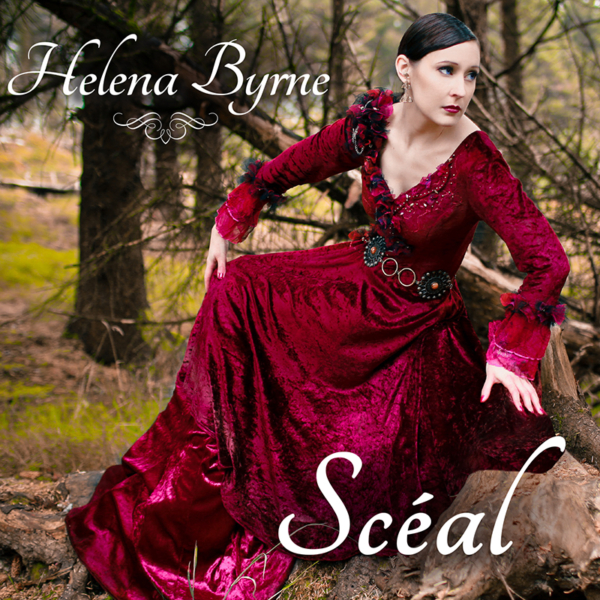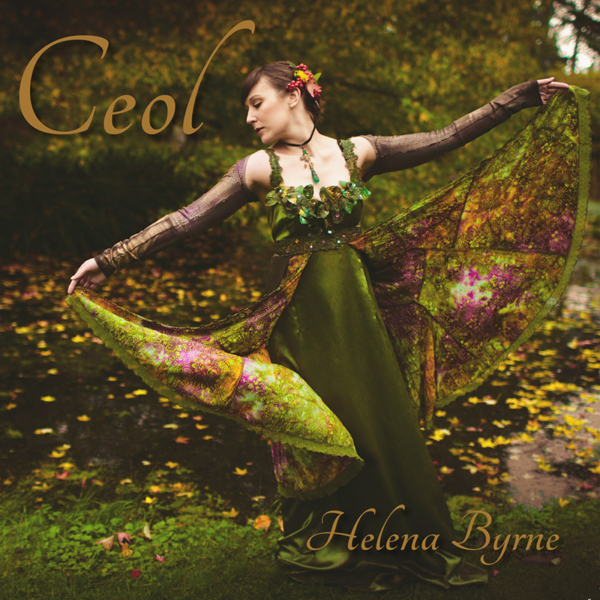A note from Helena:
“Ireland’s Great Hunger, a dreadful famine that occurred between the years 1845 to 1852, was undoubtedly one of the most horrific moments in world history, estimated to have caused about 1 million deaths. Additionally, a further 1 million people emigrated.
To this day, we can see the reverberations of the Great Hunger in Irish culture, it’s landscape and not least, it’s diaspora.
Emigration also played an immense role in Irish history before and after the Great Hunger.
Below you will find documentaries, books and other resources that I hope you will find as compelling as I did. As I continue to research, I will be updating this list regularly.”
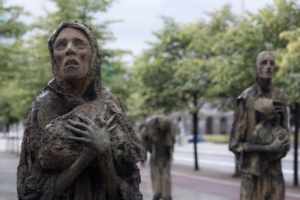
DOCUMENTARY
The Hunger: The Story Of The Irish Famine
Liam Neeson narrates this brilliant two-part documentary, exploring the international origins, development and legacy of the Great Famine.
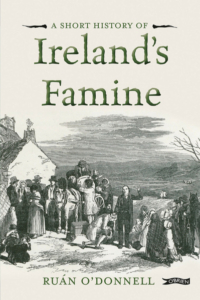
BOOK
This is a really good overview of the various political and socioeconomic factors that shaped the Irish famine. I found this really helpful when first studying the famine and wanting to gain a broad understanding of this period in history.
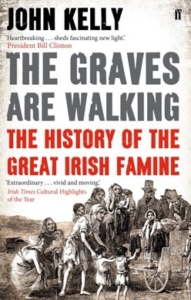
BOOK
A dark, in-depth read examining the factors that led to the Great Hunger and it’s devastating effects on Ireland. Kelly does not tippy toe around the realities of the famine and some readers may find it a challenging read.
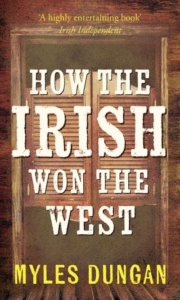
BOOK
I highly recommend Myles Dungan’s ‘How the Irish Won the West’. Stripping away the Hollywood myth of the Wild, Wild West, this warts and all book delves into the history of the Irish who ventured far west for exploration and exploitation.
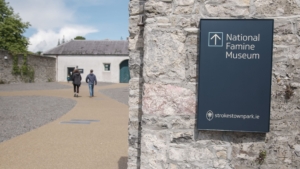
MUSEUM
The National Famine Museum, located in Strokestown Park, Co. Roscommon, offers an incredibly moving self-guided tour, shedding light on the experiences of those connected with Strokestown Park Estate and the wider Irish community during the Famine.
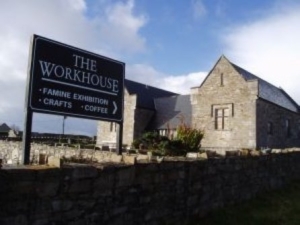
MUSEUM
Found in the northern Donegal village of Dunfanaghy is this original workhouse, now acting as a heritage centre and cafe. The exhibition highlights the famine’s effects on the local community and tells the story of ‘Wee’ Hannah, who survived the Workhouse’s hardships as a young girl.
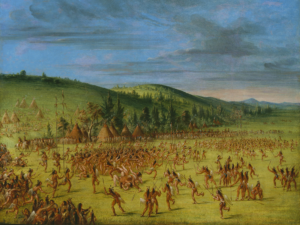
ARTICLE
This Smithsonian Magazine article tells of the unlikely connection between the Irish and the Choctaw Nation. In 1847, a mere 14 years after the Choctaw’s own tragic march along the Trail of Tears, they felt compelled to donate what they could to the starving Irish
DIGITAL RESOURCE
The Great Irish Famine Commemoration Website details the work of the National Famine Commemoration Committees’ annual programme of events to coincide with the National Famine Commemoration.
DIGITAL RESOURCE/VIRTUAL TOUR
The Dunbrody Famine Ship offers a great virtual tour on their homepage. The Dunbrody is an authentic reproduction of an 1840’s emigrant vessel, which can be visited in person in New Ross, Co. Wexford.
MUSIC
Music inspired by the Great Famine of Ireland 1845-1852 – A YouTube Playlist created by Helena.
DIGITAL RESOURCE
The Great Irish Famine Online – A fantastic, comprehensive website with interactive maps illustrating the spread of the potato blight, the effects on the Irish population and much more.
The website is a collaboration between the Geography Department in UCC and the Department of Culture, Heritage and the Gaeltacht.
DIGITAL RESOURCE
An online archive containing the digitized, transcribed, and translated French language annals of the Grey Nuns of Montreal, or Sisters of Charity, who first tended to Irish famine emigrants in Canada.
DOCUMENTARY
An extract from the BBC documentary series ‘Union with David Olusoga’ giving a brief history of the Great Famine and it’s impact on the country.
MUSEUM
I would mark this museum as an absolute must for anyone visiting Ireland with an interest in Irish history and Irish emigration. It’s highly interactive and full of an abundance of information. I’ve visited and performed at the museum several times, and have seen both my two-year-old daughter and my fifty-year-old sister in law enjoy it immensely.
If you’re not able to visit the museum in person, look out for their online events.
ALBUM/PODCAST
On Thursday April 11th 1912, fourteen people from the parish of Addergoole in Co. Mayo, boarded the RMS Titanic at Queenstown (Cobh) in Cork. They were setting out for a better life in the Land of Opportunity. Sadly, only three of the group would survive.
‘The Titanic & The Addergoole 14’ is an 11 minute audio piece from storyteller Helena Byrne’s album ‘Tóraíocht Shonais’ (Pursuit of Happiness). It tells the harrowing story of the Addergoole 14 & illustrates survivor Annie McGowan’s first hand account of the early hours of April 15th 1912.
Very special thanks to the relatives of the Addergoole 14 who helped to make this happen.
ARTICLE
This article from the Irish Star newspaper gives a brief insight into the Irish passengers on the Titanic, and the group of fourteen Irish emigrants who travelled from the parish of Addergoole.
DOCUMENTARY
‘Wayfaring Stranger with Phil Cunningham’ is a fantastic documentary exploring connection between Irish and Appalachian music, from Scotland to Ulster, and on to America.
MUSEUM
The Ulster American Folk Park is one of my favourite museum’s in Ireland. Telling the story of Ulster people’s emigration to North America in the 18th and 19th centuries. Through a Living History experience, you can wander through traditional farmhouses, step on-board the full-scale emigrant ship and see traditional craft demonstrations by costumed guides.
ARTICLE
From the National Museum of Ireland, the article ‘Irish Emigration to America’ gives a brief background into the history of Irish emigration to North America in the 19th century.
DOCUMENTARY
This 1998 four-part documentary takes an in-depth look at the history of Irish emigration to America, from the Great Famine to the successes of the Irish in American politics.
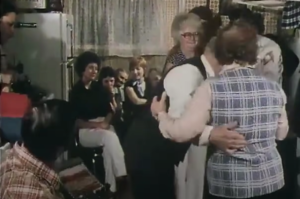
DOCUMENTARY
The 1981 ‘Forgotten Irish’ episode from the Radharc documentary series looks at the Irish diaspora in Newfoundland, Canada. It delves into the history of Irish emigration to that part of the world and the significant cultural impact that Irish ancestry has on the community in present day.
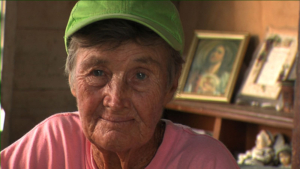
DOCUMENTARY
‘The Redlegs – Ireland’s Sugar Slaves’ is a brilliant documentary delving into the lesser known history of the Irish who were shipped to Barbados as indentured servants in the 1600s. From Moondance Productions.
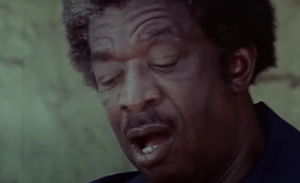
DOCUMENTARY
In 1976, Irish documentary series ‘Radharc’ journeyed to Kinsale, Montserrat to highlight the strong Irish connection with the island and the unique ‘Black Irish’.
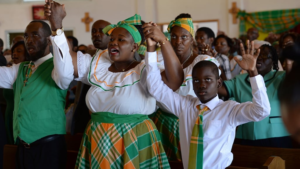
ARTICLE
The Caribbean Irish: the other Emerald Isle. Lorna Siggins for the Irish Times takes a look at the history of the Irish in Monserrat.
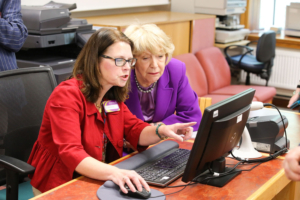
ONLINE RESOURCE
Irish Emigration Database – this comprehensive Irish Emigration Database to the United States was started by the John F. Kennedy Truse in conjunction with the Balch Institute in Philadelphia, the Ellis Island Restoration Commission in New York and the Battery Conservancy in New York.
This database is compiled directly from the original Ship’s Passenger Manifests. It records Irish, English, Scottish, and Welsh immigrants arriving in US ports on many different ships, from many different ports.
For the port of New York, the database covers the years between 1846 and 1890. For Boston, Baltimore, New Orleans, and Philadelphia the database covers only the famine years between 1846 and 1851.
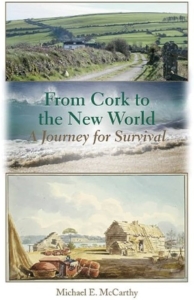
BOOK
A historical fiction story based upon the lineage of the McCarthy family. Rather than watch their children weaken and starve, the McCarthy and Sullivan families leave poverty-stricken Ireland to become part of the Peter Robinson Settlement in Canada.
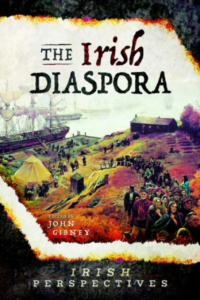
BOOK
John Gibney has put together this anthology exploring the lives and experiences of Irish educators, missionaries, soldiers, insurgents, from those who simply sought a better life overseas to those with little choice in the matter, and who established an Irish presence across the globe as they did so.
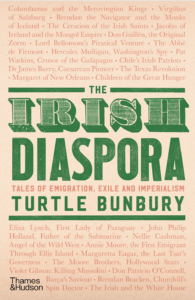
BOOK
I absolutely loved this book and the various characters it introduces to the reader.
In this acclaimed work, Turtle explores the lives of those men and women, great and otherwise, whose journeys – whether driven by faith, a desire for riches and adventure, or purely for survival – have left their mark on the world.
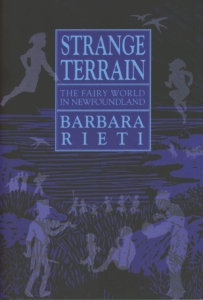
BOOK
A fascinating study of the movement of Irish folklore with Irish emigrants to Newfoundland, Canada.
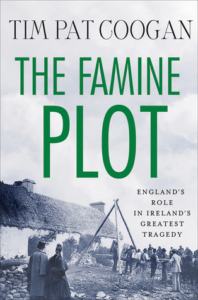
BOOK
A brilliant study of the role England had on the Great Hunger. Tim Pat Coogan, gives a fresh and comprehensive account of one of the darkest chapters in world history, arguing that Britain was in large part responsible for the extent of the national tragedy, and in fact engineered the food shortage in one of the earliest cases of ethnic cleansing. So strong was anti-Irish sentiment in the mainland that the English parliament referred to the famine as “God’s lesson.”
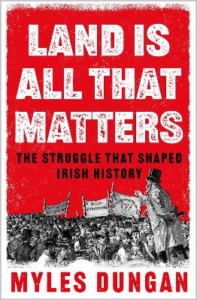
BOOK
A comprehensive study of the political and socioeconomic landscape that shaped Irish history.
In this epic narrative, Myles Dungan examines two hundred years of agrarian conflict from the ruinous famine of 1741 to the eve of World War Two. It explores the pivotal moments that shaped Irish history: the rise of ‘moonlighting’, the infamous Whiteboys and Rightboys, the insurrection of Captain Rock, the Tithe War of 1831-36, the Great Famine of 1845 that devastated the country and drastically reduced the Irish population, and the Land War of 1878-1909, which ended by transferring almost all the landlords’ holdings to their tenants. These events take place against the backdrop of prevailing British rule and stark class and wealth inequality.
Join my newsletter
Click here to add your own text


